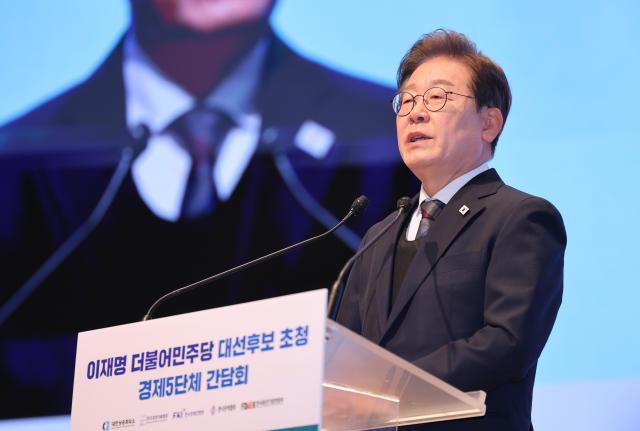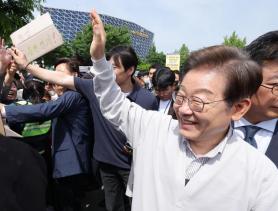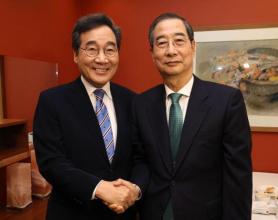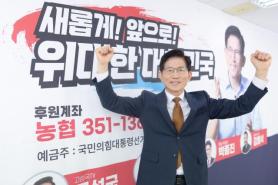
“Companies are at the center of economic revival,” Lee told a gathering at the Korea Chamber of Commerce and Industry in Seoul, which included the heads of five influential business federations.
“The era when government leads economic and industrial issues has already passed. We must trust the expertise and capabilities of the private sector, with government providing solid support.”
The forum brought together some of South Korea’s most powerful corporate figures, including Chey Tae-won, chairman of the Korea Chamber of Commerce and SK Group; Sohn Kyung-shik, chairman of the Korea Enterprises Federation; Ryu Jin of the Federation of Korean Industries; Yoon Jin-sik of the Korea International Trade Association; and Choi Jin-sik, who leads the Federation of Middle Market Enterprises of Korea.
Lee has in recent months sought to position himself as pragmatic on economic matters. On Thursday, he praised South Korea’s rapid transformation from a post-colonial nation into an industrial and democratic powerhouse, crediting the private sector for its role in driving exports and economic development.
Still, the mood among business leaders was cautious. Many expressed concerns over persistent stagnation in consumption, investment, and exports, as well as heightened geopolitical tensions on the Korean Peninsula.
“Our economic situation is very difficult,” said Sohn, the business federation chairman. “Diplomatic issues remain unresolved, and economic momentum is weakening.”
Ryu of the Federation of Korean Industries called for bold government action to support emerging industries. “Aerospace, artificial intelligence, robotics, biotechnology, next-generation shipbuilding, defense industries, and smart farming all urgently require active government backing,” he said. He also pointed to the need for infrastructure investment and tax reform to reduce the burden on businesses.
In recent weeks, Lee has faced scrutiny over his proposal to introduce a 4.5-day workweek, raising concerns among business leaders about potential labor disruptions. Addressing those concerns, he sought to reassure his audience that no such measure would be implemented unilaterally.
“Some worry that I might suddenly push this through using emergency fiscal measures,” he said. “That’s not possible. It requires thorough dialogue and preparation between labor and management.”
Copyright ⓒ Aju Press All rights reserved.




